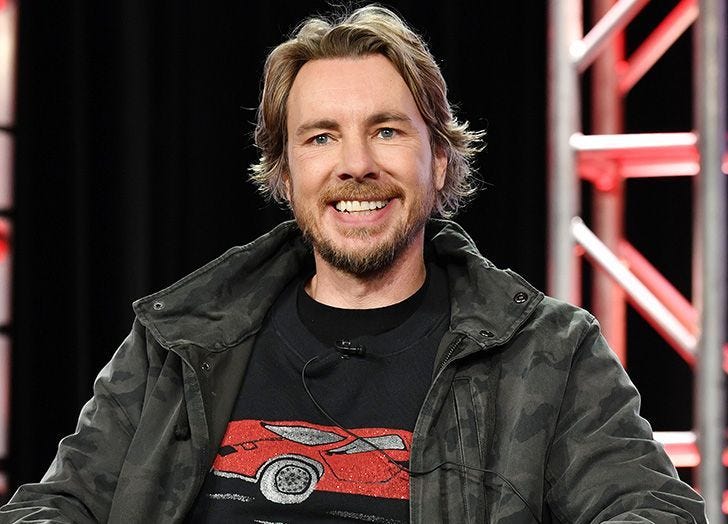
Dax Shepard has fallen off the wagon.
After 16 years sober, Dax admitted on his podcast “Armchair Expert” to recently becoming re-addicted to pain pills after surgery for complications after a motorcycle crash.
While the reaction from the masses has been overwhelmingly supportive, there are a few notable critics who seem to think Dax’s ability to be truthful on his podcast regarding topics like his marriage, his family life, and his prior addiction(s) make him infallible, for one, and secondly, that it’s his responsibility to hear the public’s opinions about his failure and misstep.
Podcasts give us the sense of intimacy and connection with people we don’t know - that’s the attraction to the medium. But that connection isn’t real, as much as we might want it to be. The relationship is entirely one-sided.
Dax has willingly invited these people to throw barbs at him with his decision to go public in such an open way - and it’s great that he’s done that. But, ultimately, the only person he’s truly accountable to are his closest friends and his family.
“I feel I’m entitled to take two Vicodin at the end of the day because I am in pain,” he explained. “I’m getting shadier and shadier and I’ve not ever yet bought them — and then I do.”
Shepard said for the last eight weeks or so he’s been on pills “all day.”
When his prescriptions ran out he started “taking 30 mg. that I’ve bought whenever I decide. I start lying to you, pretty regularly and I hate it. And I’m lying to other people and I know I have to quit, but my tolerance is going up so quickly that I’m now in a situation where I’m taking eight [30-milligram pills] a day, and I know that’s an amount that’s going to result in a pretty bad withdrawal,” Shepard told his co-host Monica Padman
“I start getting really scared, and I’m starting to feel really lonely. And I just have this enormous secret.”
Pain pill addiction is a disastrously easy booby-trap to fall into - if I wanted to really sit down and count it, I could name no less that 20 people in my extended family who are currently addicted. If I wanted to go even further, I could name 10+ who have died to overdose with pain pills being part of the mix or the beginnings of a more serious addiction.
My own father died from a morphine and hydrocodone overdose 8 years ago. We know they were pills because the ambulance found 70 - 70! - of them in his pocket when they got him to the hospital. Who knows how many he ingested - enough to kill a man.
You see, pill addiction is more common than the critics would have you believe. They’re easy to get - doctors prescribe them like candy to hungry children. The streets are oversaturated with them - and a man of means like Shepard can get as many as he wants - and quickly. And it’s easy to take a bunch of them in a short amount of time - unlike other drugs that have a natural consumption limit.
Here are some stats from addictioncenter.com:
About 130 Americans die every day from an opioid overdose.
From 1999 to 2017, 399,230 Americans lost their lives to opioids.
In 2017 alone, 47,600 fatal overdoses occurred in America which involved at least one opioid.
In 2017, doctors issued 191,218,272 opioid prescriptions, a slight decline from the 200,000,000 opioid prescriptions which they issued every year from 2006 to 2016.
Since 1999, the sale of opioid painkillers has skyrocketed by 300%.
About 20% to 30% of people who take prescription opioids misuse them.
2 million Americans misused prescription opioids for the first time in 2017.
About 10% of people who misuse prescription opioids become addicted to opioids.
Approximately 2.1 million Americans have an opioid use disorder.
About 5% of people with an opioid use disorder will try heroin.
Because it’s so easy to get get them, it’s just as easy to get addicted and to quickly spiral out of control. Dax, being a recovering addict of all types of substances, knew the game and, luckily, was able to do the correct things to fight out of it before things got toxic.
There should be no shame for falling into this trap. The only true shame would have been to not admit it and not ask for help. Dax doesn’t owe you and I an explanation or damn thing past it - but he put out a public apology in, I believe, an honest attempt to show others it’s possible to come forward and receive forgiveness and unconditional love.
There’s no tragedy in starting over - or starting anew - in sobriety. Dax went from 16 years to 7 days.
The tragedy is not giving yourself the opportunity.
If you would like to listen to the podcast, here is the link.

